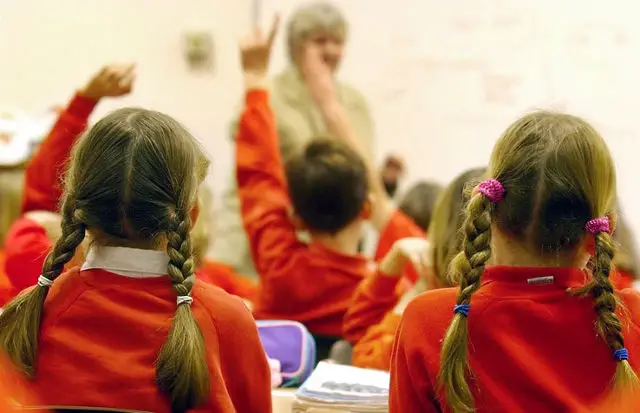There has been a drop in the number of parents on the Isle of Wight winning appeals after their child was not offered a place at their preferred school.
Ahead of the 2017-18 academic year, parents submitted 86 appeals against the decision not to admit their child into their first choice school, Department for Education data shows.
20 per cent success rate
In 55 of the cases, the parents were able to make their case in a hearing with an appeals panel, with 11 walking away with a win – a success rate of just 20%.
This was a decrease from the 2016-17 academic year, when 24% of cases were decided in the parents’ favour.
Rapidly rising pupil numbers
The Local Government Association says councils in England are under “extreme pressure” because of rapidly rising pupil numbers.
A spokesman said:
“Councils have an excellent track record of fulfilling their statutory duty to ensure every child has a school place available to them.
“But councils fear that they will no longer be able to meet the rising costs for the creation of spaces, nor find the space for new classes, if they aren’t given the money or powers to do so.
“Secondary school places are becoming increasingly squeezed, with more families facing growing uncertainty when trying to secure their child’s place.
“If we’re to meet the demand for school places then councils should be given back the powers to open new maintained schools and existing academy schools should expand where required.”
Admissions code must be followed
All academies, free schools and local authority-maintained schools have to follow the Government’s admissions code when deciding which pupils to allocate places to each year.
Parents submit appeals to the school’s admission authority, which could be the local authority or another governing body depending on the type of school.
An independent appeal panel will then assess the case, and decide whether the school was right to turn down the application.
Drop in those offered first place
Last year, 93% of applicants on the Isle of Wight were offered a place at their first choice of school, down from 95% in 2016-17.
The rate of appeals has risen slightly over the last year. In 2017-18 there were 2.7 appeals per 100 school admissions, up from 2.2 in 2016-17.
Higher success for secondary school choices
Parents of secondary school-age pupils were more likely to be successful in their appeals than those of primary school pupils, with a success rate of 24% in 2017-18 compared to 14%.
National comparison
The number of appeals in England has risen dramatically over the last five years, climbing from 50,550 in 2013-14 to 60,700 in 2017-18.
This equated to a rate of four appeals per every 100 admissions compared to 3.5 five years ago.
Academies, who act as their own admissions authority, were more likely to be the subject of appeals than schools maintained by local authorities.
Appeal panels were also more likely to decide in a parents’ favour with academies than they were with local authority-maintained schools.
Article shared by Data Reporter as part of OnTheWight’s collaboration with Press Association and Urbs Media





